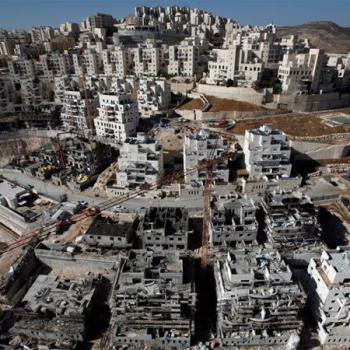The last blog post I published was sent from a world which no longer exists. It was written in a pre-Covid, pre-lock-down’ United Kingdom, composed in a place we now call ‘normal times’. It was a review of a theatre play in London’s West End, which itself feels wildly bizarre. There I was sitting inches away from strangers for two hours. Such crazy times, in those far off days.
I’ve found it hard to write about Covid-19 for this blog. It’s an immense event that touches everything and everyone. It’s hard to get your head around it. It can generate a mental paralysis. Even the language that’s entered our everyday vocabulary already operates at the extremities of expression. “Unprecedented”, “exceptional”, “unimaginable”. But where do you go when our language has already run out of track? The human mind is forced to hunker down until the virus passes over us, or through us, or does us in.
Our political leaders are keen for us not to let our thoughts become too distracted. Keep it simple and we can get through this. It’s a sensible communications plan. So the team that last year gave us ‘Get Brexit done’ now want us to #StayHome.
And the multi-dimensional way in which Covid-19 operates only tightens the mental lock-down. Personal life is interrupted. Work life changes (or stops). Community life is simultaneously diminished and enhanced. The national conversation is transformed to a single theme. In the UK, we’ve finally stopped talking about Brexit and no longer define ourselves in realtion to it. The economic consequences of that decision now look miniscule compared to the potential fallout of the government’s financial rescue programme. Nobody wants to start thinking about the consequences of another generation of austerity when our social infrastructure still hasn’t recovered from the last great recession a decade ago. But that debate can’t be postponed for long.
Right now, most of us, are understandably focused on those nearest to us. Our children, our parents, our friends and neighbours. Are they okay? Can I help them? Or, if our own health is fragile, we’re rightly concerned about protecting our own wellbeing.
All in this together?
“We’re all in this together” has become the great mantra of national solidarity. It’s both true and false. The biology of the virus could be said to be ‘egalitarian’ in its behaviour. But the communities it passes through are certainly not. Covid-19 did not emerge from some pristine laboratory (unless you believe the conspiracy theorists) and neither is it travelling through the world vacuum packed. Everything about Covid-19 has context.
The virus moved from animals to humans in a context. That context is highly likely to have some strong climate change related origins along with long standing trends in global food production. Once human to human transmission began it moved swiftly because of international air travel and the route it took reflects our global supply chains and trading relationships. There’s nothing random or metaphysical about how any of this has happened.
And when it reaches where you live, there is context too. Authoritarian government, democratic government, political ideologies, strong health systems, weak health systems, religion and culture all play a huge part in what happens next. And even within a single society Covid’s impact can be vastly different. Invariably though, the weakest, most vulnerable, least financially secure end up suffering the most. It turns out that in practice Covid-19 does not treat all its hosts in the same way.
The micro-beast
In trying to get a mental grip on this multi-tentacled-micro-beast and its power to infect every cell of society, I wrote a list of what Covid-19 is capable of doing (in no particular order or ranking of significance):
Covid-19 is a multiplier of kindness
Covid-19 is a generator of anxiety
Covid-19 is an accelerator of change
Covid-19 is a challenge to accepted wisdom
Covid-19 is a cover for political power grabs
Covid-19 is an exposer of inequality
Covid-19 is an exploiter of vulnerability
Covid-19 is a perpetuator of lies
Covid-19 is a truth teller
I’m sure you could add to this list.
All I’m observing here is that our world, and in particular humanity, is one mass of tangled interconnections. And Covid-19 is nudging, pulling, stretching, and ripping its way through that mass with endless consequences.
Passover truths
Earlier this month we held a Zoom Seder night to connect with our older children for Passover from their lock-down in Leeds. The Exodus story we recount each year is a multi-layered religious myth. That means that although the events we remember may never have happened, they are still packed with truth.
The truths Passover can reveal change over time, depending on how our current circumstances influence our reading of the text. So this year, when we retold the story of the ten plagues and their role in the liberation of the Hebrew slaves from Egypt, one truth stood out. Plagues can trigger dramatic and transformative change with social, political and ethical consequences. Hang on to that thought, as I’ll come back to it.
Israel/Palestine
My normal ‘beat’ in for this blog is Israel/Palestine and how it plays into the 21st century Jewish condition. Over the last decade of writing, I’ve tried to challenge what have become accepted wisdoms about the meaning and interpretation of Jewish history. I’ve questioned our Jewish understanding of safety and security. I’ve charted how the relationship between Israel and the Palestinian people has distorted our Jewish identity and undermined long standing traditions and values. But is there a Covid-19 ‘angle’ to my on-going critique of Jewish communal politics? How is Palestinian freedom and Jewish wellbeing infected by coronavirus?
Like everywhere else, Covid-19 arrived in Israel/Palestine within an existing context. The context is the same power imbalance, the same human rights abuses, the same occupation and blockade that existed in pre-Covid ‘normal times’. Covid-19 plays out unfairly just as everything else does in that part of the world. The pre-existing dynamics make some minor adaptations and then, by and large, it’s business as usual. That’s certainly the picture witnessed by Mondoweiss’ Palestine reporter Yumna Patel, based in the West Bank:
“Despite widespread shutdowns, curfews, and quarantines, Israel has continued to raid Palestinian cities and towns, arrest and imprison Palestinians, demolish homes and tear down structures, and facilitate attacks carried out by settlers.”
Gaza
The Gaza context for Covid-19 is one of the most frightening on the planet. It’s already been globally isolated for the last 13 years thanks to Israel’s stance and the co-operation of its western allies. Gaza’s economy and health system were shattered long ago. The tiny strip’s population of 2 million are the ultimate example of Covid vulnerability. As Jonathan Cooke wrote recently in The National: “Unless Gaza enjoys a miraculous escape, an epidemic is only a matter of time. The consequences hardly bear contemplating.”
If that happens Israel will undoubtedly put the blame squarely on Hamas. That’s despite still being effectively responsible for the territory under international law. Global public opinion may be less willing to see it Israel’s way. But that’s assuming people have the emotional bandwidth to absorb the news of Covid tragedies beyond their own national borders.
A Covid-19 catastrophe in Gaza will be the next test of Jewish communal leadership around the world. It would be better not to behave as Israel’s local public relations officer. But old habits die hard, even when they do more harm than good. Some social distancing from the government in Jerusalem would be a healthier response from the Board of Deputies, and others, this time around. But I’m not optimistic. Covid compassion is likely to run short of supply when it comes to Palestinians.
Exit strategies
For the richer Western countries that have experienced the pandemic first, the talk is all of exit strategies. How to end the social distancing, re-boot economies, and return to normal. But ‘normal’ was not so great for most people. many of us would like to take the opportunity to be more ambitious. Or is that just too naïve?
In business and in politics, leaders like to say that you should never let a good crisis go to waste. What they mean is that an emergency always creates an opportunity to implement change which would be more difficult in normal times. This is true and we shouldn’t shy away from adopting this approach to our Covid-19 exit strategies.
The role of disease in shaping humanity’s outlook has always been underestimated. As we’re learning today, epidemics and pandemics can be historical ‘players’ just as much as kings and queens, emperors and tyrants. The question is, are we free to decide what those consequences should be?
Covid-19 is without doubt an accelerator of change and we may see that taking place in everything from the geo-political rivalry between America, Russia and China to how often we need to travel to the office. But can we hope to plan for any of this in a constructive way?
The combination of climate change and globalisation may mean that pandemics, like extreme weather, are no longer freak events that visit us only once or twice a century. Preparing for this and adjusting in ways which avoid economic shocks that hit the most vulnerable ought to be the new priority. There are good signs that this may be possible.
Listening to the science has become the new orthodoxy for our political elites. When we exit this crisis we shouldn’t leave that behaviour behind, we should take it with us. It’s been the demand of Climate campaigners for years and the current crisis has forced politicians to become accustomed to letting medical and environmental facts dictate social and economic policy. That has to continue but in more managed, sophisticated way that creates just transitions rather than destroying livelihoods overnight.
Some ways of thinking, some political ideologies, some religious attitudes will not serve us well in the years ahead. When it comes to my blogging ‘beat’, I’ve said before that Climate change makes Zionism obsolete as a strategy for Jewish security. Pandemics make it redundant too. Fortress states based on ethnic privileges are no longer practical responses to the greatest challenges we face.
As with the biblical epic of liberation we tell to ourselves each Passover, let’s make this plague one that changes the course of our history too. In 2020, a nationalist ideology dependent for its continuance on the on-going subjugation of a neighbouring people is not only immoral but unsustainable in every respect. And it’s infected every aspect of modern Jewish experience. It’s time to let it pass over.
Covid-19 as creative metaphor
I began this blog by describing the mind numbing effects of Covid-19 and how the new vocabulary it’s generated had paralysed my thinking.
I’ve found a way through the writer’s block though. I want to turn the language of pandemics into creative metaphors. Let the new words and phrases we’ve become accustomed to shape our exit from this time of contagion. If you think it sounds naïve, you’re right. But if you have a better set of priorities then let me know.
So here’s my edgy Jewish exit strategy.
Source PPE against hypocrisy
Make ‘key workers’ heroes all year round
Introduce universal testing for kindness
Insist on social distancing from hatred
Build up our resilience against fear
Develop herd immunity against cynicism
Unmute our voices of compassion
Scale up the mass production of solidarity
Most of us will get through this. Sadly, some will not. But in the meantime we need to take good care of ourselves and those around us.
Stay home. Protect the NHS. Save lives.
















